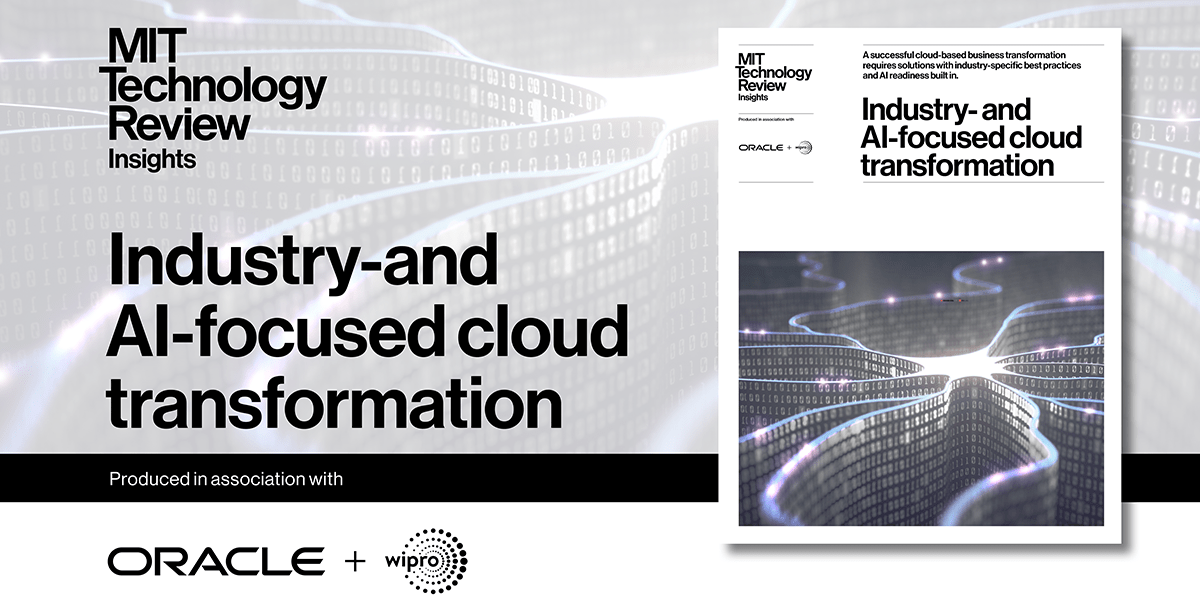“As applications move to the cloud, more and more opportunities are getting unlocked,” says Vinod Mamtani, vice president and general manager of generative AI services for Oracle Cloud Infrastructure. “For example, the application of AI and generative AI are transforming businesses in deep ways.”
No longer simply a software and infrastructure upgrade, cloud is now a powerful technology capable of accelerating innovation, improving agility, and supporting emerging tools. In order to capitalize on cloud’s competitive advantages, however, businesses must ask for more from their cloud transformations.
Every business operates in its own context, and so a strong cloud solution should have built-in support for industry-specific best practices. And because emerging technology increasingly drives all businesses, an effective cloud platform must be ready for AI and the immense impacts it will have on the way organizations operate and employees work.
An industry-specific approach
The imperative for cloud transformation is evident: In today’s fast-faced business environment, cloud can help organizations enhance innovation, scalability, agility, and speed while simultaneously alleviating the burden on time-strapped IT teams. Yet most organizations have not fully made the leap to cloud. McKinsey, for example, reports a broad mismatch between leading companies’ cloud aspirations and realities—though nearly all organizations say they aspire to run the majority of their applications in the cloud within the decade, the average organization has currently relocated only 15–20% of them.
Cloud solutions that take an industry-specific approach can help companies meet their business needs more easily, making cloud adoption faster, smoother, and more immediately useful. “Cloud requirements can vary significantly across vertical industries due to differences in compliance requirements, data sensitivity, scalability, and specific business objectives,” says Deviprasad Rambhatla, senior vice president and sector head of retail services and transportation at Wipro.
Health-care organizations, for instance, need to manage sensitive patient data while complying with strict regulations such as HIPAA. As a result, cloud solutions for that industry must ensure features such as high availability, disaster recovery capabilities, and continuous access to critical patient information.
Retailers, on the other hand, are more likely to experience seasonal business fluctuations, requiring cloud solutions that allow for greater flexibility. “Cloud solutions allow retailers to scale infrastructure on an up-and-down basis,” says Rambhatla. “Moreover, they’re able to do it on demand, ensuring optimal performance and cost efficiency.”

Cloud-based applications can also be tailored to meet the precise requirements of a particular industry. For retailers, these might include analytics tools that ingest vast volumes of data and generate insights that help the business better understand consumer behavior and anticipate market trends.
Download the full report.
This content was produced by Insights, the custom content arm of MIT Technology Review. It was not written by MIT Technology Review’s editorial staff.

